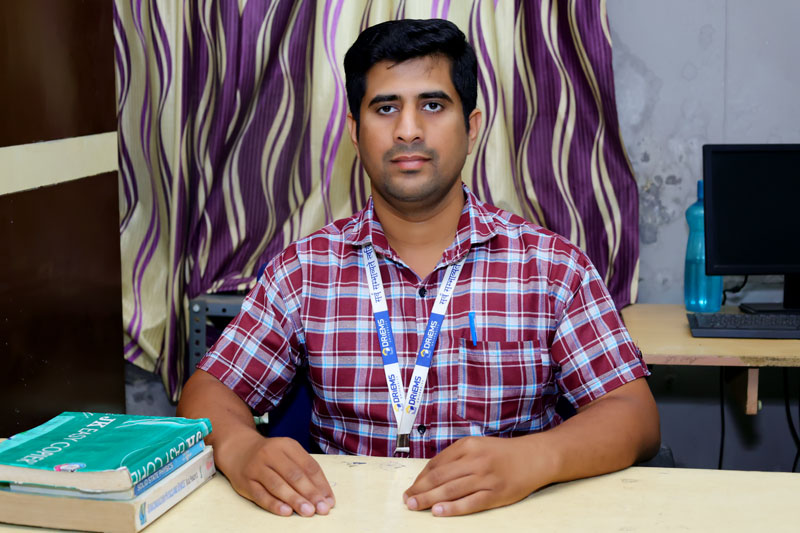

Ever since the department of Physics started its journey over two decades back, the department has been simultaneously and successfully performing the multiple roles of creating new knowledge, acquiring new capabilities and producing an intelligent human resource pool contributing in various domains of the society. The Department has always been on a high growth path and has experienced and dedicated faculty with strong commitment to physics education who works with zeal and enthusiasm to provide a vibrant and optimum learning environment. Our vision is to ignite and nurture enthusiasm, interests, and give passion in young minds for pure and applied physics, and build a foundation for excellence in fundamental and applied research. As the Head of the Department, I am proud to be part of a team of dedicated and talented individuals who are not only committed to excellence in teaching but also highly committed to research. I invite you to explore our website to learn more about all that our department has to offer. You will find a wealth of information about our faculty, research programs, courses, and upcoming events.
The department of Physics was established since the inception of the college in 1999. It is presently under School of Natural Sciences of DRIEMS University, with a goal of nurturing students a scientific temperament and futuristic thinking through the provision of broad and varied knowledge in the physical sciences. It has expanded significantly over its twenty-five-year journey from B.tech programme to Master and Doctoral programme. The department integrates with renowned faculty members of different field of expertise. The department teaches the fundamentals of Physics to B.tech students, so to make them efficient to apply the concepts in different branches of Engineering. In addition to this it provides 2 years of M.Sc programme and Ph.D programme from 2024. To demonstrate the students for practical application of Physics, department has integrated different practical laboratory. With this, department provides research facilities for Ph.D scholars in various fields of Ultrasonics, Chemical physics, Material sciences and Nano Physics. Under Nano Physics research, it includes fabrication of carbon nano particles, thin film and powdered materials for applications in different fields like opto-electronic devices , EMI shielding and energy storage applications etc. For the students’ overall growth, the department places a strong emphasis on experiential learning through a variety of cutting-edge approaches, such as seminars, workshops, guest lectures, exhibitions, and small projects.
◆ To promote innovative research, advanced learning, and holistic improvement in physics, while simultaneously offering high-quality education and transforming the department into a center of excellence through collaborations.
◆ M1: To foster a scholarly environment that supports professionals, educators, and students through research and publication opportunities.
◆ M2: To provide students with scientific and technical education.
◆ M3:To inspire students to apply their expertise in physics for societal well-being.
DRIEMS, a Premier Technical Institute of India with the highest ‘A’ Grade by NAAC (under UGC) has grown from strength to strength since its inception in 1999.